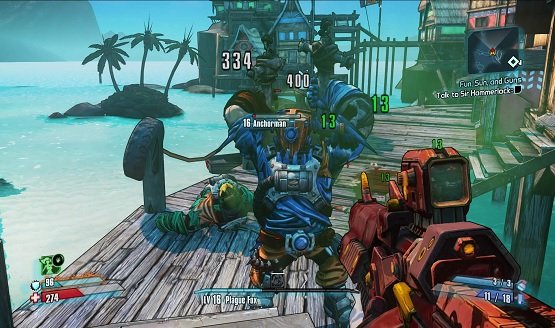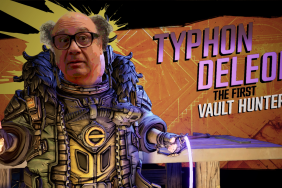Gearbox Software’s Randy Pitchford has offered his thoughts on the ongoing debate over microtransactions, which has caused quite a rift between the gaming community and developers. In a lengthy post on Twitter, Pitchford said that he’s against “predatory monetization schemes” in video games but he feels that the term “loot box” is being misused in the arguments put forth, and is wrongly associated with questionable monetization practices.
Here’s Pitchford’s message in full:
I am generally very much against predatory monetization schemes in F2P games for consumable goods and even more so against them in premium games. I tend to oppose such techniques both as an artist and creator and also as a customer and a gamer. Evidence of my position is that we never sold Golden Keys (an arguably consumable good) in the Borderlands game. We had non-trivial levels of demand from customers to do so, but we did not relent. We chose to only give Golden Keys away via social media and partner relations.
Contrarily, I tend to be very supportive of post-launch monetization of durable goods as DLC in *almost* any form. Again, as a customer and as a creator, I think that new, discrete content that took energy to create deserves to have the effort compensated. I do, however, object to some of the arguments and language being used to fight against the predatory monetization schemes I have just derided in the first post in this thread.
As an artists and creator who very much *loves* the nature of the “loot box” as it appears in our Borderlands games, I’m concerned that the words “loot box” are being used as short hand for a practice I am not in favor of. Can we find another term for what we object to?
Also, I have seen arguments against consumable goods that are for customers who want to speed up progress along these lines: “Grinding sucks, I shouldn’t have to pay to avoid grinding.” I have an issue with this kind of argument. In the case where “grinding” is, well, playing the game and in the case where the player does not want to, well, play the game but doesn’t want to pay cash to skip playing the game, I recommend considering another choice: don’t play the game. If the “grinding” is the game and the game is not fun, the rational choice is to play other games that are fun. If playing the game is fun, it should be a reward, not an obstacle to play the damn thing. If playing the game is not fun and the desire is to skip it, well, that’s a game that should be skipped and passed upon.
I realize that there are some people who want the status of having beaten a game or having achieved a certain degree of progress in a game and are willing to pay in order to achieve that. Those are precisely the sorts of minds those kinds of games are for. But if you are the kind of mind who does not want to pay for progress and is not actually enjoying the “grinding” of playing the game, then, well, frankly, you should take it upon yourself to vote with your attention and just stop playing that game and move to something else.
I love games. I love playing them. I love creating them. As a customer, I am very happy making sure that I am helping to finance the efforts of artists who entertainment. As a customer, I can make free choices about where my time and moneys goes. So should you!
What do our readers think of Pitchford’s stance?
[Source: Randy Pitchford (Twitter)]








